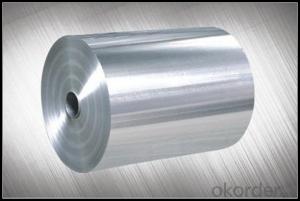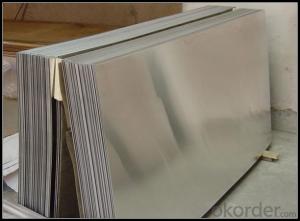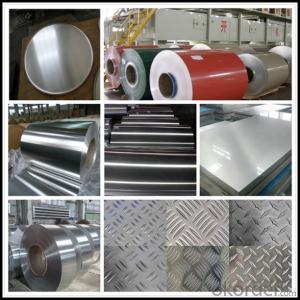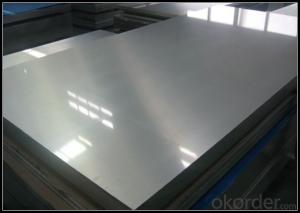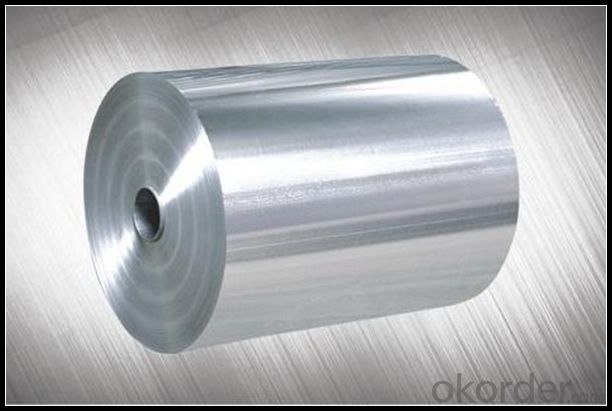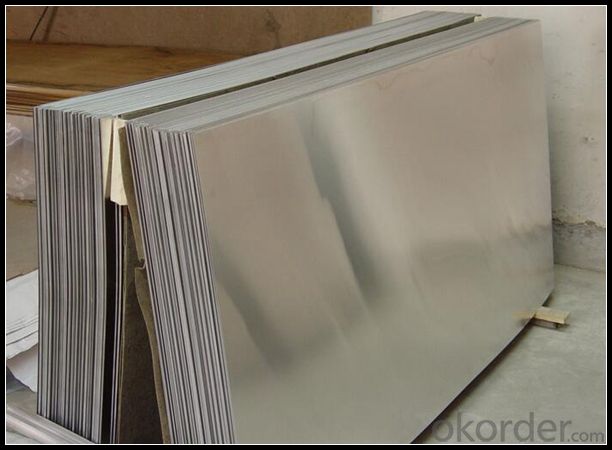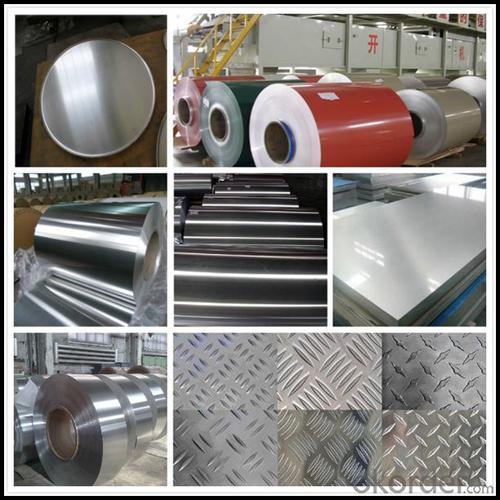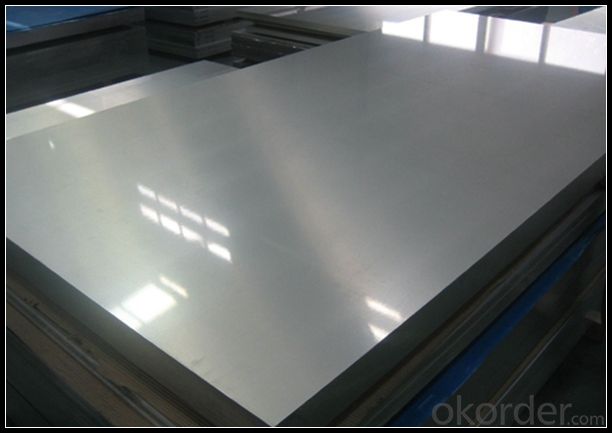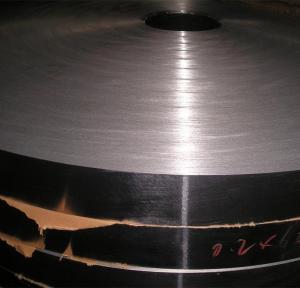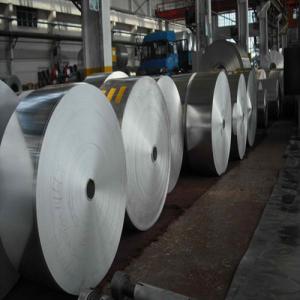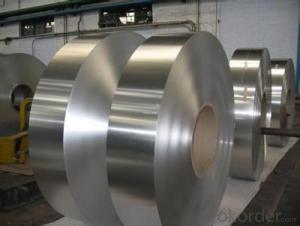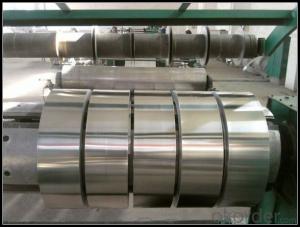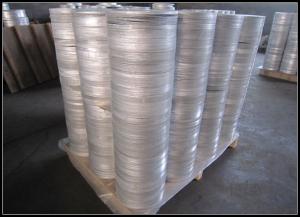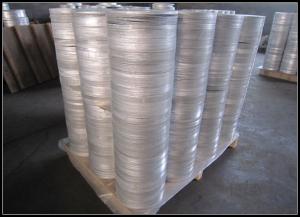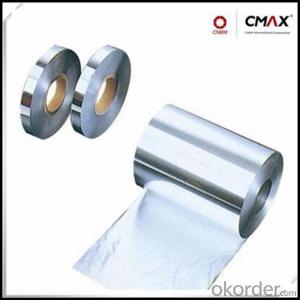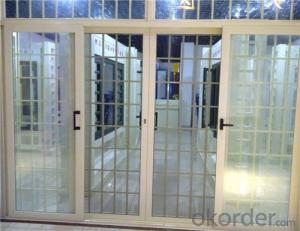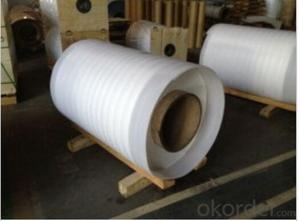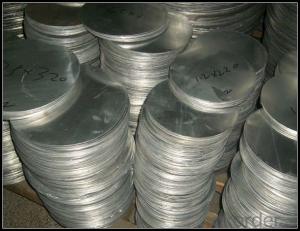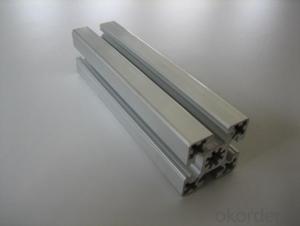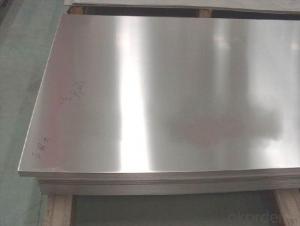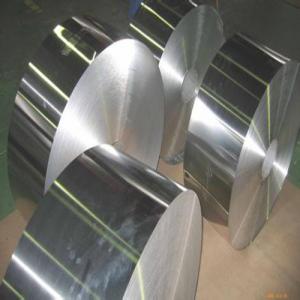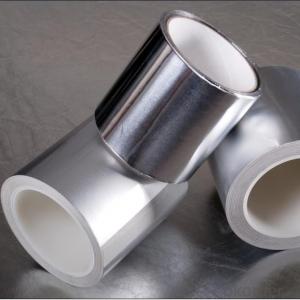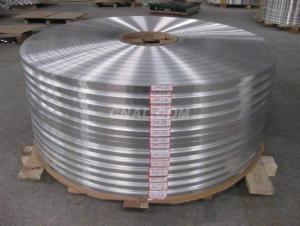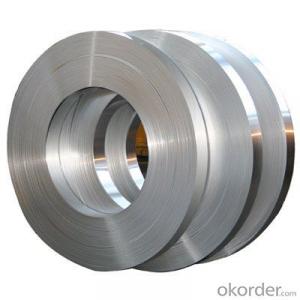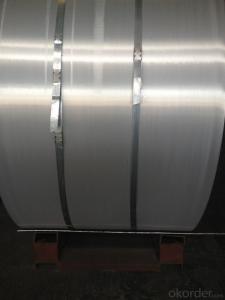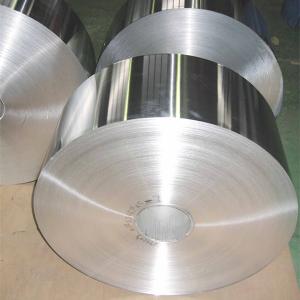Aluminum Sheet in Door with Different Specification
- Loading Port:
- Tianjin
- Payment Terms:
- TT OR LC
- Min Order Qty:
- 6 m.t.
- Supply Capability:
- 4999 m.t./month
OKorder Service Pledge
OKorder Financial Service
You Might Also Like
Specification
1. Specification of Aluminum
1) Alloy | 1050, 1060,1100, 3003 3004 3105 3005 5005 5052 etc |
2) Temper | O/H12/H14/H1/H18/H32/H34/H36/H38//H111/H112/H116/H321/T6/T651/T3/T351 etc |
3) Thickness | 0.1mm to 6mm |
4) Width | 20mm to 3300mm |
5) Coil weight | 100kgs to 6 tons depends on actual requirement |
6) Core material | Aluminum alloy |
7) Coil Inner diameter | 76mm, 152mm,or as required |
2. Application of Aluminum
(1).Interior: wall cladding, ceilings, bathrooms, kitchens and balconies, shutters, doors...
(2).Exterior: wall cladding, facades, roofing, canopies, tunnels,column covers , renovations...
(3).Advertisement: display platforms, signboards, fascia, shop fronts...
3. Feature of Aluminum
*Such coil is specially designed to replace aluminum ingot, due to the high export tax of aluminum ingot, the coil has better price than ingot.
*This type of coil can fit customer's remelting furnace just like ingot, no need to make any change to the production line that was previously used for ingot. The standard coil size and weight is very suitable for the feed gate of furnace.
*This type of coil causes less material wastage than ingot when remelted.
*Our coil is made directly from ore, no need to go though the ingot making process, quality is much better than other suppliers who use ingot scrap to make coil.
Be free from Oil Stain, Dent, Inclusion, Scratches, Stain, Oxide Dicoloration, Breaks, Corrosion, Roll Marks, Dirt Streaks and other defect which will interfere with use
4. Certificate:
SGS and ROHS(if client request, paid by client), MTC(plant provided), Certificate of Origin(FORM A, FORM E, CO), Bureau Veritas and SGS (if client request, paid by client), CIQS certificate
5. Image of Aluminum
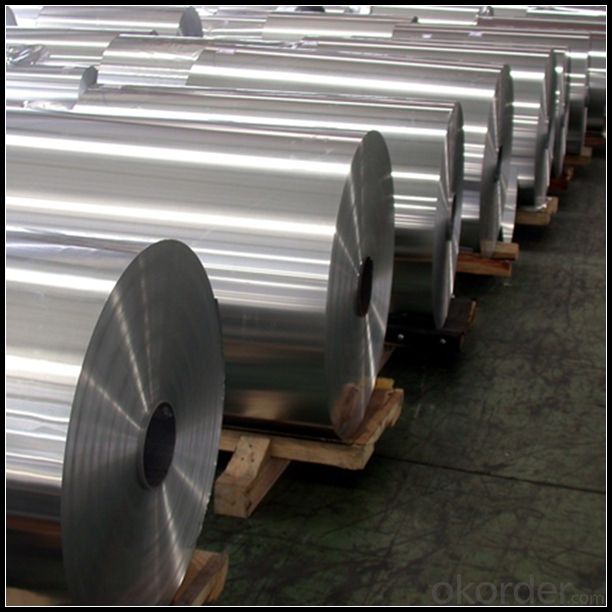
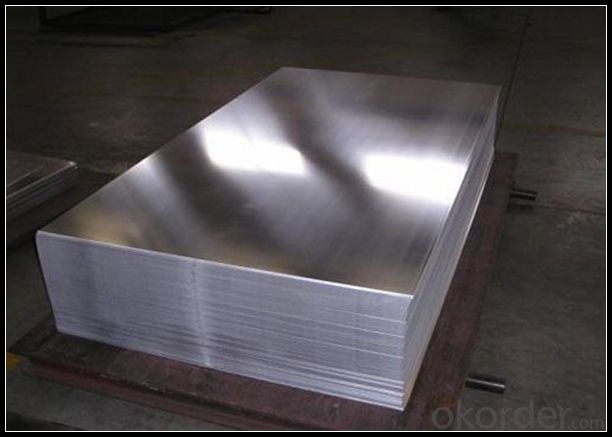
6. Our Service
1. Reply your enquiry in 24 working hours. |
2. OEM, buyer design, buyer label services provided. |
3. Exclusive and unique solution can be provide to our customer by our well traned and professional engineers and staffs. |
4. We can provide free sample for your check |
5. We have the certification of ISO 9001 |
6. Timely delivery |
7. Special discount and protection of sales area provided to our distributor. |
8. Good after-sale service. |
7. FAQ
Q: What is the produce prase? | ||||
A: Normally it would be 40days after received your deposit. | ||||
Q: Can you provide free samples? | ||||
A: Yes, free samples will be sent to you on freight at destination. | ||||
Q: Can I get your latest catalogue? | ||||
A: Yes, it will be sent to you in no time. | ||||
Q: What is the MOQ? | ||||
A: 3 tons | ||||
Q: What are your payment terms? | ||||
A: We accept L/C, D/A, D/P, T/T, West Union,etc. |
- Q: What types of aluminum are known for their high strength and resistance to wear and tear?
- <p>Yes, certain types of aluminum alloys are known for their exceptional strength and resistance to wear and tear. 7075 aluminum, for instance, is one of the strongest aluminum alloys, often used in aerospace and automotive applications due to its high strength-to-weight ratio. Another example is 6061 aluminum, which is commonly used in structural applications because of its good mechanical properties and resistance to corrosion. These alloys achieve their strength through the addition of elements like copper, magnesium, and zinc, which enhance their properties for specific industrial uses.</p>
- Q: Describe the steps involved in the production of aluminum strips from raw materials to the final product.
- <p>The process of manufacturing aluminum strips involves several key steps. Initially, raw materials, typically bauxite ore, are mined and then processed to extract alumina (aluminum oxide). This alumina is then dissolved in a cryolite bath at high temperatures within a reduction cell in the Hall-H茅roult process. Here, aluminum is reduced and collected as molten metal. The molten aluminum is then cast into ingots or directly into billets. These billets are then hot or cold rolled into strips, with multiple passes through rollers to achieve the desired thickness and width. The strips may undergo annealing to restore ductility and improve workability. Finally, the aluminum strips are cleaned, coated if necessary, and then cut to length, inspected, and packaged for distribution.</p>
- Q: This question asks for a comparison between aluminum strips and other common roofing materials, highlighting their distinct characteristics.
- <p>Aluminum strips are lightweight, corrosion-resistant, and have a long lifespan, making them ideal for roofing applications. They are also recyclable and can be easily bent and shaped. In contrast, other roofing materials like asphalt shingles are more affordable but have a shorter lifespan and are less eco-friendly. Metal roofing, similar to aluminum, is durable but can be heavier and more expensive. Clay and concrete tiles offer a traditional aesthetic but are heavy, require more maintenance, and are prone to breakage. Wood shakes and shingles are renewable but are less fire-resistant and have a shorter lifespan compared to aluminum.</p>
- Q: Which is the best aluminum alloy belt?
- Main products: aluminum, automotive, aviation, military board aluminum high-speed train ship plate, aluminum plate, cabinet board, high-end cosmetics cover material, mold piece aluminum pipe insulation board, special high Jingchao flat aluminum (whole plate flatness + 0.22mm), kraft paper, aluminum plate, aluminum plate, moisture-proof super hard Pre Stretch aluminum plate, aluminum plate, aluminum oxide, imported mirror plate, embossed aluminum, aluminum plate, aluminum plate, leveling drawing pattern aluminum and high precision high precision aluminum coil, aluminum strip, aluminum strip ultra narrow, extrusion rods, fine pull rods, Mo Guangbang, tube, seamless tube, aluminum forging, surface profile and other "off the spot wholesale cutting, retail
- Q: Explain the role that aluminum strips play within the construction of a building.
- <p>Aluminum strips in a building serve multiple functions. They are often used for thermal insulation, helping to reduce heat transfer between the interior and exterior of the building, thereby improving energy efficiency. Aluminum strips also play a role in moisture control by preventing water infiltration, which can protect the building's structural integrity. Additionally, they can be used for aesthetic purposes, adding a modern and sleek appearance to the building's exterior. In some cases, aluminum strips are used in the construction of window and door frames, providing strength and durability while also offering good resistance to corrosion.</p>
- Q: What are the unique production techniques employed in the manufacturing of high-quality aluminum strips?
- <p>High-quality aluminum strips are produced using specialized manufacturing methods to ensure precision and consistency. Key methods include precision casting to achieve uniform thickness, continuous casting for improved material properties, and cold rolling to refine the strip's dimensions and surface finish. Annealing processes are also crucial for enhancing ductility and reducing hardness. Additionally, advanced surface treatments like anodizing or coating may be applied to improve corrosion resistance and aesthetics. Quality control measures such as strict dimensional checks and surface inspections are integral to ensuring the strips meet stringent quality standards.</p>
- Q: Aluminum band treble sounds good?
- The high pitched sound field of an aluminum band is shaped by a longitudinal distribution, so it is good to remove the axle.
- Q: Is it possible to use aluminum strips as materials for roofing membranes?
- <p>Yes, aluminum strips can be used for roofing membranes. They are known for their durability, corrosion resistance, and lightweight properties, making them suitable for various roofing applications. Aluminum strips can be used in the form of standing seam metal roofs, which are popular for their sleek appearance and strength. They are also low maintenance and can be recycled, contributing to their environmental sustainability. However, it's important to ensure proper installation and sealing to prevent leaks and maintain the integrity of the roof.</p>
- Q: What are the various types of waterproofing materials that utilize aluminum strips in their composition?
- <p>Aluminum strips are used in several types of waterproofing materials due to their durability and resistance to corrosion. Some common types include: 1) Aluminum Foil Tapes: These are adhesive tapes with an aluminum foil backing, used for sealing joints and seams. 2) Aluminum Coated Fabrics: Fabrics coated with aluminum to provide a barrier against water and UV rays, often used in construction and roofing. 3) Aluminum Flashing: Sheets of aluminum used to cover joints and intersections in roofing and walls to prevent water infiltration. 4) Aluminum Waterproofing Membranes: These are flexible sheets that can be applied to surfaces to create a waterproof barrier. 5) Aluminum Coated Self-Adhesive Sheets: These are sheets with a self-adhesive backing and an aluminum coating, used for sealing and waterproofing applications. Each type serves specific waterproofing needs and is chosen based on the application and environmental conditions.</p>
- Q: What are the potential drawbacks or negative aspects of utilizing aluminum strips as a material for exterior siding on a building?
- <p>Aluminum siding, while durable and lightweight, has several disadvantages. It can dent easily due to its softness, which may require frequent repairs. It also lacks insulating properties, leading to increased energy costs as it doesn't retain heat well. Additionally, aluminum siding can be noisy during heavy rain or hail, and it may expand and contract with temperature changes, causing warping or gaps. Furthermore, it can be more expensive than some other materials, and its reflective nature may lead to a less aesthetically pleasing appearance compared to other siding options.</p>
Send your message to us
Aluminum Sheet in Door with Different Specification
- Loading Port:
- Tianjin
- Payment Terms:
- TT OR LC
- Min Order Qty:
- 6 m.t.
- Supply Capability:
- 4999 m.t./month
OKorder Service Pledge
OKorder Financial Service
Similar products
Hot products
Hot Searches
Related keywords
